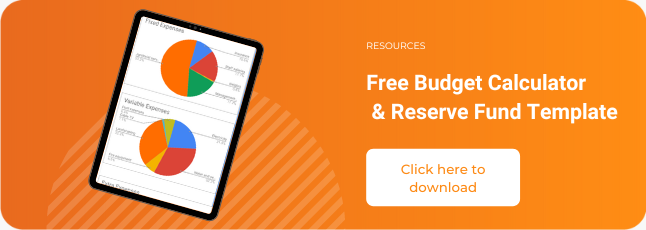Performing an HOA reserve study is a vital activity in community associations. It allows board members to assess their HOA financial health and make wiser decisions.
Regular reserve studies also minimize risks related to building defects and natural disasters.
With that in mind, let’s discover how an HOA reserve study works and how associations can benefit from it.
What is an HOA reserve study?
An HOA reserve study evaluates the financial and physical state of a homeowners association (or HOA).
This analysis asses the HOA’s financial situation by looking at some budgetary aspects such as:
Revenue
The revenue of a homeowners association comes from the HOA fees homeowners pay on a regular basis. It can also come from special assessments which are extra fees the association charges homeowners on special occasions.
Operating Fund
The majority of the HOA revenue is allocated to the operating fund. This fund serves to pay recurring expenses such as:
- Day-to-day maintenance
- Utilities
- Janitorial services
Reserve Fund
Another portion of the revenue is allocated to the reserve fund. These savings serve to pay for large and costly projects that shouldn’t occur regularly. Like the replacement of a community pool, for example. This fund also serves to pay for unexpected expenses. Such as hurricane damage.
During an HOA reserve study, an expert reviews the current state of your fund and determines its strength and viability.
A reserve study also assesses the physical state of your common areas by including an inspection.
On-site HOA Inspection
As you may know, any physical component of your HOA will deteriorate over time. So repairs and renovations are impossible to avoid.
To evaluate the physical condition of your main common areas, an expert will conduct an HOA inspection. They will then create a component list and determine the useful life, the remaining life, and the costs associated with your assets.
Based on the results of both the financial analysis and the physical inspection the reserve analyst will be able to determine three main aspects:
- The component list (list of parts of the common areas that require repair and replacement)
- The percent funded (strength of your fund, between 70-130% = well-funded)
- A reserve plan (strategy for punctual repairs, replacement, and savings)
Is conducting a reserve study mandatory by law?
While some states do require homeowners associations to conduct HOA reserve studies others don’t.
In California, an HOA reserve study is required regardless of the size of the association. An expert should perform this study at least once every three years and board members should present the funding plan annually.
In Florida, a reserve study is not required. However, a reserve schedule for repair and replacement of major components is necessary. The schedule’s purpose is to give HOA residents information about the reserves.
Should my HOA do a reserve study even if my state doesn’t mandate it?
Yes, it is strongly recommended to perform reserve studies even if your state doesn’t have any jurisdiction in this regard. After all, it is better to be safe than sorry.
Having said that, clear laws are useful. Homeowners associations that don’t have them may feel lost. In this case, an HOA management company will advise you and answer any questions you may have.
What are the benefits of conducting an HOA reserve study?
1. Planning large projects meticulously
Some projects require a great deal of planning to successfully complete them. This is the case for major component repairs for example. These projects should never be taken lightly. Imagine, having to install a new roof unexpectedly because of a lack of regular inspection. Even worse, imagine not having enough reserves to fund it. This would lead to special assessments and lots of frustration from residents. By performing regular HOA reserve assessments, you prevent these situations from happening.
2. Avoiding special assessments
A special assessment happens when the reserves of an association are not enough to cover some expenses. Because the funds are insufficient, the HOA has to charge homeowners an extra fee (on top of the regular HOA fees).
This is clearly the kind of notice residents don’t want to receive. If the HOA board studies its reserves regularly the risk of special assessments is very low.
It goes without saying that avoiding special assessments completely is impossible. Even with the best planning, unforeseen situations can happen.
3. Natural disasters preparedness
Some regions are more prone to natural disasters. If you live in a state where hurricanes or wildfires are common, then you must prepare for it.
In the event of a natural disaster, inspecting your property afterward helps you identify post-disaster hazards. If you can compare the state of it to an inspection done before, that’s also helpful. If you don’t spot issues in your common areas early on, chances are that any issues you may have will grow.
In both cases, an HOA reserve study is a useful process to help you get ready. On one hand, you can set aside part of your reserve for potential natural disasters. On the other, inspecting your premises regularly will ensure you know about any risks before and after a disaster occurs.
4. Prevent hazards and liability issues
The recent tragedy with the condo association, Surfside’s collapse showed us the worst that can happen.
Without a doubt, this tragedy was a wake-up call to many community associations across the country.
Making sure your HOA finances are healthy and your common areas are secure should be a top priority. The safety of all residents is what matters the most.
The board should also be aware of the laws around inspections and maintenance and be compliant at all times.
5. Having a clear picture of the state of your finances and common areas
As an HOA board member, your main objective is to manage your community in the best way possible.
Great management implies trust and transparency. Without a clear picture of your assets, you will not be able to communicate effectively to the residents.
Presenting clear numbers and analysis during HOA meetings helps keep residents informed and engaged. Having a clear picture also allows for a smoother board transition.
3 best practices to perform excellent HOA Reserve Studies
1. Check your governing documents and state laws
To be compliant, the first step is to check your governing documents and state laws. This is where you will find clear indications on how to proceed. If your state laws and governing documents don’t have anything in this regard then contact a reserve study company. They will be able to guide you through the process and give you best practices.
2. Hire experts and make their job easier
While board members can do reserve studies, it is preferable to hire professionals to perform this job. What the board can do instead is to make this task easier by keeping records in order. Storing HOA documents online is a great example. It makes important files easily accessible to different stakeholders. You may also reduce the frequency of reserve studies if the board is very good at inspecting and keeping track of its finances.

3. Use technology
Technology can be your ally to simplify the process of studying your HOA’s reserve. By using an HOA accounting software, you make sure to have your finances always up to date. This makes everything easier when it comes to doing the reserve study. HOA Inspection tools also exist to help board members and community managers inspect components and list their observations easily.
However, instead of using many platforms the best way is to use an all-in-one portal that allows you to:
- Keep track of your income and expenses
- Keep records of your HOA inspections
- Communicate via multi-channels with your residents
- Store important documents in the cloud
- Manage and book amenities
All this and more can be done through what we call HOA software. This robust platform allows you to perform any HOA management task in one single place.
Final points
Performing a regular HOA reserve study prevents you from running into financial problems. It minimizes the risks of special assessments and hazards due to property neglect. By applying best practices your HOA will be financially healthy and your residents will be safe.
Click on the image below to learn about Quickbooks, an HOA accounting software that simplifies HOA finances for board members and community association managers.




